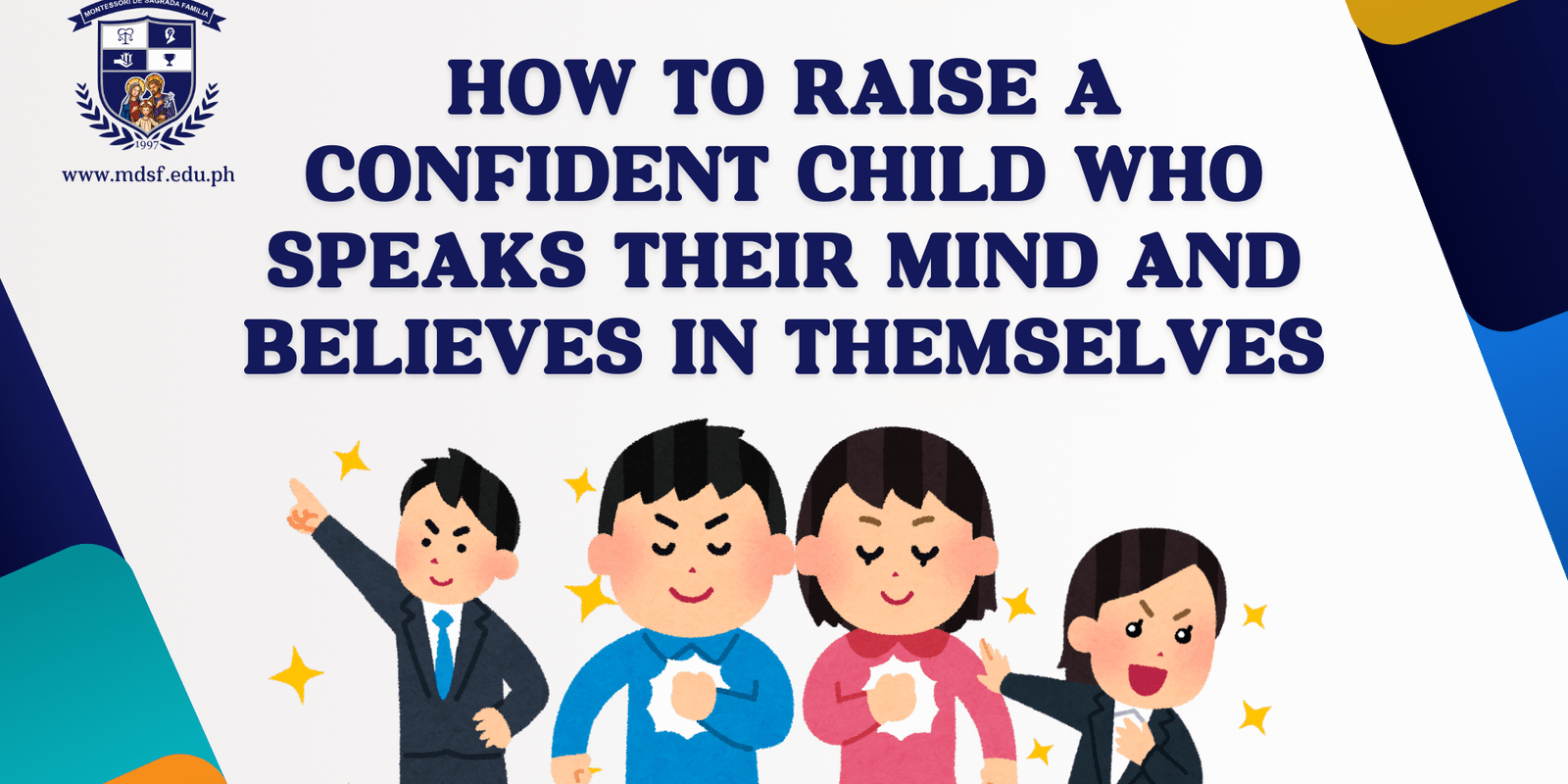Children are naturally expressive and full of ideas, but as they grow, their environment can either nurture or limit their voice. We, at MDSF, support children in becoming self-assured individuals who think independently, speak clearly, and trust their abilities.
Confidence is not just a personality trait. According to psychologist Albert Bandura’s theory of self-efficacy, belief in one’s ability to succeed in specific situations is learned through mastery experiences, verbal encouragement, and social modeling (Bandura, 1977). This means that confidence grows through real life, not just praise.
When children consistently hear that they are capable, see others persist, and experience small successes, they begin to develop a strong belief in their own potential.
Understand Where Doubt Begins
In early childhood, beliefs are formed through repeated emotional experiences. According to Dr. Carol Dweck’s research on mindset, children praised only for results may fear failure and begin to associate mistakes with shame (Dweck, 2006). Over time, this creates limiting beliefs such as “I’m not smart” or “I always get things wrong.”
Limiting beliefs often start from negative self-talk that comes from comparison, pressure, or inconsistency at home or school. These beliefs are difficult to unlearn in adulthood, so it is important to address them early.
Build Confidence Through Small Daily Actions
Listen without interruption
When your child is speaking, avoid rushing in to correct their words or finish their thoughts. This helps them feel that their opinion matters and builds their confidence in sharing ideas.
Praise effort over talent
Rather than saying “You are so smart,” say “You worked hard on that” or “You practiced a lot and improved.” This promotes a growth mindset and reduces fear of failure (Dweck, 2006).
Avoid comparison
Children who are compared to siblings or classmates often internalize the belief that they are not good enough. Instead of saying “Look how your brother did it,” say “Let’s focus on your progress.”
Offer choices whenever possible
Giving your child options teaches autonomy. Whether they choose their outfit or how to solve a puzzle, it shows you trust their decision-making.
Watch your language
Labeling a child as “shy,” “bossy,” or “lazy” can shape their self-perception. Clinical psychologist Dr. Lisa Firestone explains that repeated labels from adults form part of a child’s inner critical voice (Firestone, 2003).
Encourage Your Child to Express Themselves
Create time every day to ask open-ended questions like:
- What do you think about this?
- Is there something you wish we did differently today?
- What do you feel proud of?
Even if their opinions are different, respond with curiosity. Model how to disagree with respect so they learn that their voice is valued, not judged.
How MDSF Helps Build Confidence Every Day
Here at MDSF, our learning environments are designed to give children both structure and freedom. They are encouraged to make choices, take responsibility, and reflect on their progress.
Our educators model respectful dialogue and guide students through problem solving. Children are supported through mistakes, not punished for them. This helps them develop internal motivation and strong self-belief.
Join the MDSF Open House
See how MDSF nurtures your child’s voice, confidence, and emotional growth through a values-based Montessori approach.
Experience our campus through an immersive school familiarization session. Click here to register.
Citations
- Bandura, A. (1977). Self-efficacy: Toward a unifying theory of behavioral change. Psychological Review, 84(2), 191–215.
- Dweck, C. (2006). Mindset: The New Psychology of Success. Random House.
Firestone, L. (2003). Conquer Your Critical Inner Voice. New Harbinger Publications.

